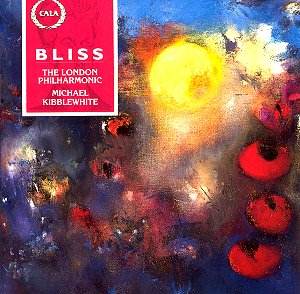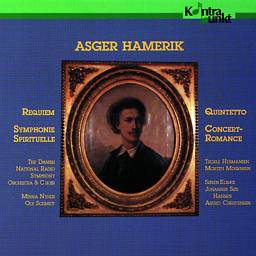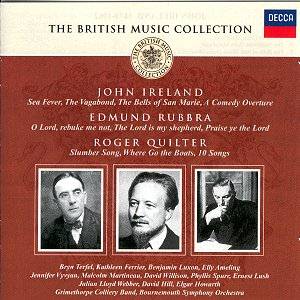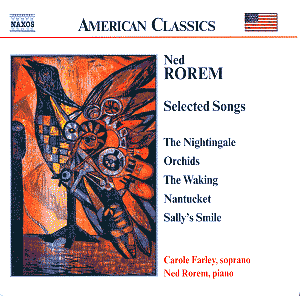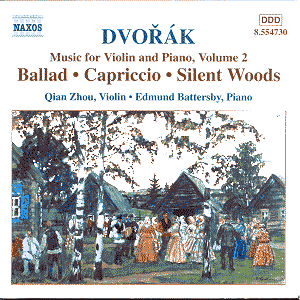 Composer: Antonín Dvořák (1841-1904)
Composer: Antonín Dvořák (1841-1904)
Works: Ballad in D Minor Op 15 No 1, Slavonic Dance in G Minor Op 46 No 2 (arr Kreisler), Slavonic Dance in E Minor Op 72 No 10 (arr Kreisler), Slavonic Dance in G Major Op 72 No 16 (arr Kreisler), Silent Woods Op 68 No 5, Mazurek in E Minor Op 49, Nocturne in B Major Op 40, Humoresque Op 101 No 7, Songs My Mother Taught Me Op 55 No 4 (arr Kreisler), Capriccio (Rondo di Concerto) B81, Reverie Op 85 No 6 (arr Klengel)
Performers: Qian Zhou (violin), Edmund Battersby (piano)
Recording: Potton Hall, Suffolk, May 1999
Label: NAXOS
Dvořák’s compositions for violin and piano reveal the composer’s ability to meld folk influences with the rich textures of Romanticism. This second volume of his music, performed by Qian Zhou and Edmund Battersby, encompasses an intriguing array of works that traverse the emotional and stylistic spectrum. Notably, the inclusion of well-known pieces alongside lesser-known gems creates a dynamic listening experience that reflects Dvořák’s diverse output. The recording presents an opportunity to delve into the nuances of Dvořák’s musical voice, showcasing both the virtuosity of the performers and the emotional depth inherent in the composer’s work.
Zhou’s interpretation shines particularly in the haunting Ballad in D Minor, where her veiled tone imbues the melody with a poignant softness that resonates deeply. This expressive quality, paired with Battersby’s sensitive accompaniment, highlights the lyrical intensity of the piece, often drawing the listener into its reflective depths. Throughout the recording, both musicians demonstrate an admirable command of dynamic gradation, notably in the Slavonic Dance in G Minor. Battersby’s subtle control of touch—both in the left and right hand—exemplifies a nuanced understanding of the work’s rhythmic drive, although the pizzicato ending of the G Major Dance could benefit from a more pointed, lively conclusion to better reflect the character of the dance.
The evocative Silent Woods, originally a piano duet, finds a new life in this arrangement. While the cello’s rich sonorities are missed, Zhou and Battersby manage to capture its lyricism effectively, their interplay breathing life into the piece. The Nocturne, however, emerges as a somewhat diffuse work, and despite their best efforts to shape its melodic contours, it lacks the focus that one might hope for. In contrast, the Humoresque offers a more gratifying experience, with its central section rendered with ardent enthusiasm, although it occasionally sacrifices tonal allure for exuberance.
Zhou’s passionate rendition of the Kreisler arrangement of Songs My Mother Taught Me is particularly noteworthy, exhibiting a fervency that may polarize listeners; some may find it excessively emotive. The Capriccio (Rondo di Concerto), an intriguing yet immature work from Dvořák’s early output, is performed convincingly, despite its inherent shortcomings. Here, the familiar Konzertstück manner is on display, laden with Romantic bravura that the piano arrangement cannot entirely disguise. Its lack of substantial thematic development raises questions about its place in the canon, yet it serves as a fascinating footnote to Dvořák’s oeuvre.
The sound quality of the Naxos recording is commendable, capturing the intimacy of Potton Hall’s acoustic. Each instrument is well-balanced, allowing the nuances of Zhou’s violin and Battersby’s piano to emerge clearly and cohesively. This attention to detail in engineering enhances the overall listening experience, permitting the emotional undercurrents of Dvořák’s music to resonate fully.
This collection, while somewhat eclectic in its programming, is marked by committed performances that reveal both the charm and complexity of Dvořák’s compositions. The interplay between Zhou and Battersby showcases a shared musicality that brings the music to life, making this recording a valuable addition to the existing discography of Dvořák’s chamber works. The selection of pieces, ranging from familiar favorites to obscure treasures, invites listeners to appreciate the breadth of Dvořák’s artistic vision and the interpretative possibilities it offers.
